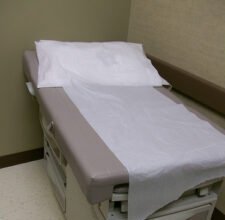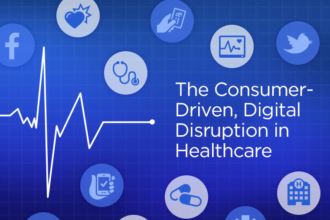You may have noticed the absence of my usual posts to HealthBlog. Here’s why. I was preparing for an out of town business trip on Monday of last week when I learned that my adult daughter needed an emergency appendectomy. As coincidence would have it, my business trip just happened to be to a city very close to where my daughter lives. I was able to keep my business meeting in the morning and still arrive at my daughter’s apartment soon after she was discharged from the hospital.
You may have noticed the absence of my usual posts to HealthBlog. Here’s why. I was preparing for an out of town business trip on Monday of last week when I learned that my adult daughter needed an emergency appendectomy. As coincidence would have it, my business trip just happened to be to a city very close to where my daughter lives. I was able to keep my business meeting in the morning and still arrive at my daughter’s apartment soon after she was discharged from the hospital. I spent the rest of the week helping her get in and out of bed, doing some cooking, walking her dog, and making sure that she was well enough to be on her own before I headed home.
It’s at times like this that one is very grateful for access to good healthcare. After all, there was a time before modern surgery and the availability of antibiotics that appendicitis was often a death sentence. Today, that rarely happens if the patient receives timely care.
 There’s no question that when we are in pain, injured or very sick that we are “engaged” patients. Not only is the patient engaged, but often his or her entire family. The problem is that when we are well again, we tend to disengage and fall back into our usual routines. The fact of the matter is that most people really don’t spend all that much time with doctors and hospitals. Most care happens in the home, and most of the contributors to good health are determined more by our genetic makeup, diet, socioeconomic status, education, exercise and other environmental factors than by the things that doctors and hospitals do in our lives. For most people, encounters with doctors and hospitals are episodic and infrequent. So, when hospitals and health systems speak of the need for greater “patient engagement”, what does that really mean and how can it be accomplished?
There’s no question that when we are in pain, injured or very sick that we are “engaged” patients. Not only is the patient engaged, but often his or her entire family. The problem is that when we are well again, we tend to disengage and fall back into our usual routines. The fact of the matter is that most people really don’t spend all that much time with doctors and hospitals. Most care happens in the home, and most of the contributors to good health are determined more by our genetic makeup, diet, socioeconomic status, education, exercise and other environmental factors than by the things that doctors and hospitals do in our lives. For most people, encounters with doctors and hospitals are episodic and infrequent. So, when hospitals and health systems speak of the need for greater “patient engagement”, what does that really mean and how can it be accomplished?
As a physician I know from the get-go that patient engagement is hard to achieve. First of all, we need to understand that healthcare is something most people view as a kind of “grudge buy”. Just as I dread going to see my dentist, I also don’t particularly enjoy anything about visits with my doctor. While both my dentist and doctor are very nice human beings, the reasons I go so see them aren’t on my list of fun things to do. I imagine most people feel the same way. Likewise, I suspect most people hate paying medical bills. Who wants to pay for something they don’t enjoy? One person I recently met likened buying healthcare services to purchasing tires for her car—necessary but definitely not satisfying.
Engagement is made even worse by the fact that medical billing is such a nightmare and paying for, and dealing with, health insurance companies is absolutely no fun at all. The insurance industry long ago trained most of us to expect someone else (government or insurance) to pay for a lot of the healthcare services we received. Now the tables have turned. More and more of our healthcare costs are not covered by insurance until we reach a yearly high deductible. This has consumers feeling even more disgruntled about doctors and hospitals and high healthcare costs. Is it any wonder that people are not “engaged”?
 I think the way to engage patients or consumers is to really help them understand the things they can do to avoid any more “engagements” with doctors and hospitals than are absolutely necessary. Show them the connection between the unhealthy choices they make and the chronic diseases and health encounters they would much rather avoid. Create financial incentives to help people stay healthy. Develop technologies that ease the pain of engaging and interacting with the health system when one must do so, and help consumers avoid as many unnecessary medical visits and costs as possible. I’d like to see doctors and hospitals acknowledge that they totally understand they are not on our list of the people we like to see and places we like to go, and that they are doing everything possible to help us take better care of ourselves so we can avoid doing business with them as much as possible. Now that is a cause that just might get me “engaged”. How about you?
I think the way to engage patients or consumers is to really help them understand the things they can do to avoid any more “engagements” with doctors and hospitals than are absolutely necessary. Show them the connection between the unhealthy choices they make and the chronic diseases and health encounters they would much rather avoid. Create financial incentives to help people stay healthy. Develop technologies that ease the pain of engaging and interacting with the health system when one must do so, and help consumers avoid as many unnecessary medical visits and costs as possible. I’d like to see doctors and hospitals acknowledge that they totally understand they are not on our list of the people we like to see and places we like to go, and that they are doing everything possible to help us take better care of ourselves so we can avoid doing business with them as much as possible. Now that is a cause that just might get me “engaged”. How about you?








